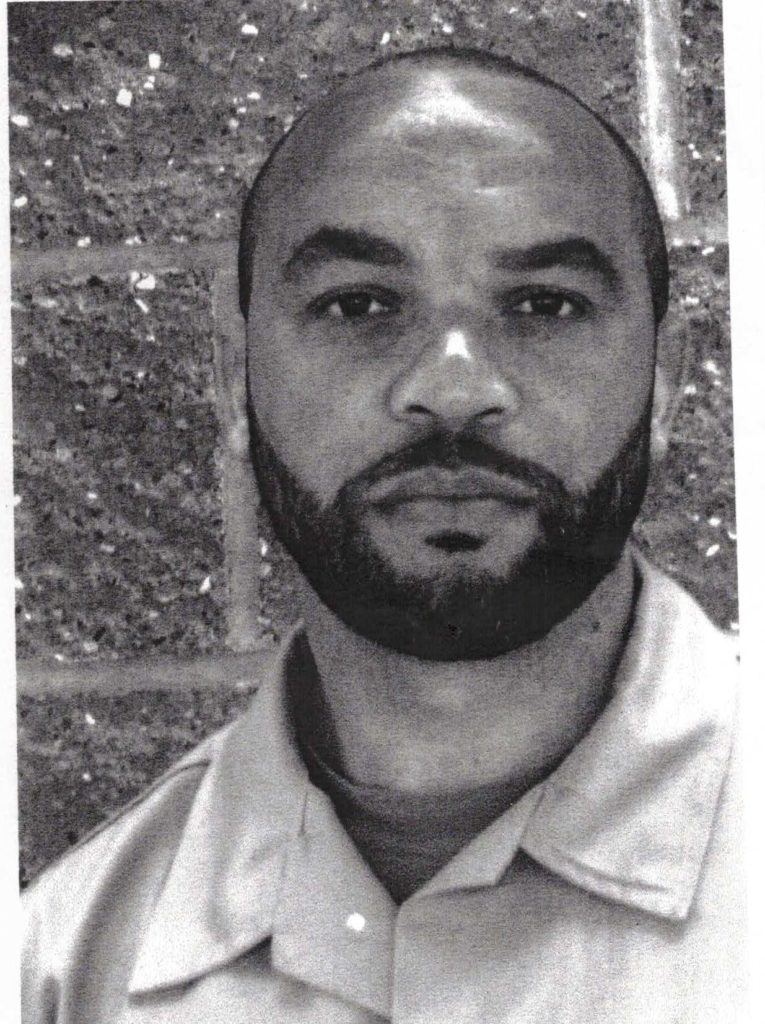The fibers of unfree labor have been woven into the fabric of our country. From the founders’ failed attempts to enslave indigenous workers, to their turn to African slaves, unfree labor has always sharpened the blade that carved our country’s course.
After more than two hundred years, the reconstruction amendments brought the abolition of slavery, a blessing that came with a curse. The Thirteenth Amendment allowed for the continuation of slavery upon conviction of a crime. So all was not lost after all for the Southern aristocrats and their Northern financial backers. They only needed to revise and rename their slave scheme and create a new regime. They wasted no time.
The former plantations became prison camps, where newly-freed black people could be re-enslaved and forced to work, and undercut the free market with their unfree labor. These years post-slavery became the early moments of modern day mass incarceration. Over one hundred years before I was born the die was cast to mold me and many other men into uncompensated money makers.
While sanctioned by the Constitution since 1865, prison labor was still rough around the edges and needed some polishing. A spit shine was not far off. Federal Prison Industries was created in 1934 by a New Deal Executive Order. It was to be an inmate labor program that filled a necessary niche and made inmates more productive. But productive for who? And what was the niche to be filled? Those questions would only be answered after Congress approved four million dollars in government funds for this new hybrid corporation. The rough edges were now polished and free labor was now shining like a diamond.
Under federal law, inmates like myself are required to work and government agencies like the Department of Defense, Education and Justice are required by Congress to order and buy merchandise from Federal Prison Industries. Since Federal Prison Industries makes everything from military equipment to office furniture there is always a market and a niche for the captive labor to fill.
The Bureau of Prisons (BOP) cast Federal Prison Industries, known as UNICOR since 1977, as a program providing valuable vocational skills and employment training. They also say that UNICOR is a correctional program that assists offenders in one day becoming “law abiding, contributing members of society”. But this is no more than wool pulled over the eyes of society, blinding it to the harmful effects of prison labor. The political trickery of the free market puppeteers goes unnoticed. The now blind John Q. Citizen elects his leader due in part to promises of bringing jobs back home from third world countries where multi-national corporations employ cheap labor paying only a fraction of what they would here in the States. That politician lives up to his promise, but John Q. Citizen never sees the job. What happened?
Mister and Miss Politician are lobbied and bought out by either UNICOR or some other private prison group like GEO or CoreCivic. John Q. then becomes distracted by the latest breaking news or the newest mass shooting and fails to question or understand why the campaign promise didn’t benefit him. He then remains unemployed, continuing his cycle of poverty.
In the 1940s, UNICOR began a massive expansion due to the war effort. In the 50s and 60s, it expanded into construction projects using inmate labor, resulting in less work for private enterprise. The 70s and 80s saw a modernization of these operations, a name change, and a requirement that inmates now apply for a job and undergo an interview process. This modernizing coincided with the Nixon-declared drug war and the beginning of America’s second round of mass incarceration. By 1984, sales reached over two hundred million dollars. During the 90s, the Clinton Administration would oversee the building of dozens more federal prisons and nearly a quarter billion in revenue, and coming into the twenty first century, the next three presidents would see revenue to five hundred million dollars and would ultimately employ me as a weapon in our government’s war against the free market.
When I arrived at FCI Gilmore in West Virginia in 2014, I tried to get a job in UNICOR. That factory was a metal shop facilitating America’s two Middle East wars. I never got that job. In 2017, at Butner Federal Prison near Raleigh-Durham, North Carolina, I made the cut and began sewing military combat clothing. I was just trying to get a good paycheck and remained blind to the bigger picture. In 2019, at Allenwood Prison, is when I became conscious of the con being perpetrated against me and the American people. It is also where I knowingly and willingly became complicit in that con.
Let me explain…
Prison is panful. Not in the physical sense, but mentally. The separation from family, friends and freedom is an ongoing tax that I am unable to pay. Even after my release, my debt will remain. But while inside, the work, my donation of cheap labor, becomes my comfort. The one place where my loneliness is lost and my pain is paused is the factory floor. I work to cope. I can receive parts in the morning and take pride in the whole in the afternoon. In a way, I become more whole with every chair that I see loaded in the truck. That sense of accomplishment is something most of us men have never felt. In fact, the prison job is many of my peers’ first. Truthfully, it’s not the pay that lures us to the landscape, because if asked, nicely or not, most of us would work for free. Coping has a cost. Therein lies the problem.
Our government leaders know that mine and others’ desperation is real and they selfishly exploit it to their financial advantage. The predatory, profit-driven system that is praised by the West preys on its unwanted and stigmatized. Greedy labor leaders lose themselves in search for the lost and left behind, and find themselves in possession of a cheap and slave-like workforce.
No dignified American would work for less than one dollar per day. But I left my dignity in the courtroom. The internal compromises that an inmate worker makes add up to more than the millions of dollars siphoned off from his handiwork. These compromises add weight to the coping bag he carries daily. The pride in a finished product can’t replace my self-worth, can’t dim the blinding lights of my depression, and can’t crush my complicity in my very own exploitation.
As UNICOR has grown, so has the opposition to its preferential treatment and low labor costs. Well over two hundred thousand businesses and trade groups have come together on an international level to lobby for legislation against its unfair practices. These groups are acutely aware of the boilerplate language about recidivism reduction and employable skills that UNICOR hides behind while committing free market murder. Sadly, John Q. Citizen fails to see how his precious vote works against his own interests.
Amazingly, UNICOR claims to operate at a loss. It has managed to use this claim as a justification to reach further into the property of the private sector instead of simply hoarding federal contracts. This cuts out John Q. Citizen with a need for cash, but cuts in inmates with a need to cope. A sharp vote for a safer society cuts the ballot box in pieces.
The Systems Applications and Products (SAP) computer system that runs our factory is manned by former drug dealers and sex offenders who are unaccepted at global Fortune 500 companies that are craving their skillset. I have learned how to do a job that robots perform much more efficiently, so referring to that skill as “useful” would be a misuse of the word. As a Quality Assurance Inspector, I am talked to like an employee but treated like an inmate. The irony compounds daily. I am currently on the waiting list to enter a Computer Aided Design (CAD) program. Hopefully, some company will see past my felonious badge of dishonor and hire me. Only time will tell.
The sight of digital bulletin boards displaying our year-to-date revenue cracks my hard, made-in-prison exterior that protects me from the realities of the inner parts of the American hell. The millions of dollars are a slap in the face that I hang my head to miss as I walk past pat downs and metal detectors on my out of the factory.
Since the addition of the Thirteenth Amendment to the Constitution, employing a captive workforce has been more American than baseball and apple pie. And what’s most saddening is that the slave-like captive, in order to cope with no hope, would cast the first vote to keep that system firmly in place. My labor is only free because I am unfree.




1 Comment
Chris
April 15, 2023 at 4:52 amHard hitting, impactful, and incredible writing. I hope this man knows how talented he is. It’s so though to make such a dim subject come alive, and Aaron did. It makes me emotional knowing such a soul as this is incarcerated. He is one that gripped me from the first sentence to the last.